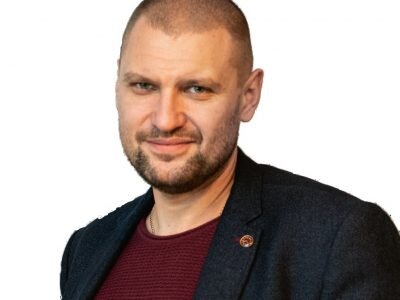The Ranok enterprise promises online customers super-fast service: all orders placed by 5:30 p.m. are dispatched by 6 p.m. In Forbes’ 2016 ranking of the best brands in Ukraine, Ranok ranked among the top 20. Over 800 people work in the various subsidiaries and business lines, producing around 20,000 articles including books, stationary, educational games and craft and art supplies. Despite the challenging economic situation in Ukraine, Ranok is doing well and growing. In 2018, the business generated a total turnover of over €7 million.
To promote its continued success, the enterprise is currently working on improving its internal processes. The need for speed is a huge logistical challenge Jurij Bugaj is focused on solving. “Our warehouse system is almost at capacity,” he says. There are a few reasons for this: firstly, purchasing behaviour has changed. Customers are shopping differently: they are more targeted in their buying, buying less overall but more often, he says. Additionally, online business has been growing by around 10% and maintaining a competitive edge requires faster order processing.

